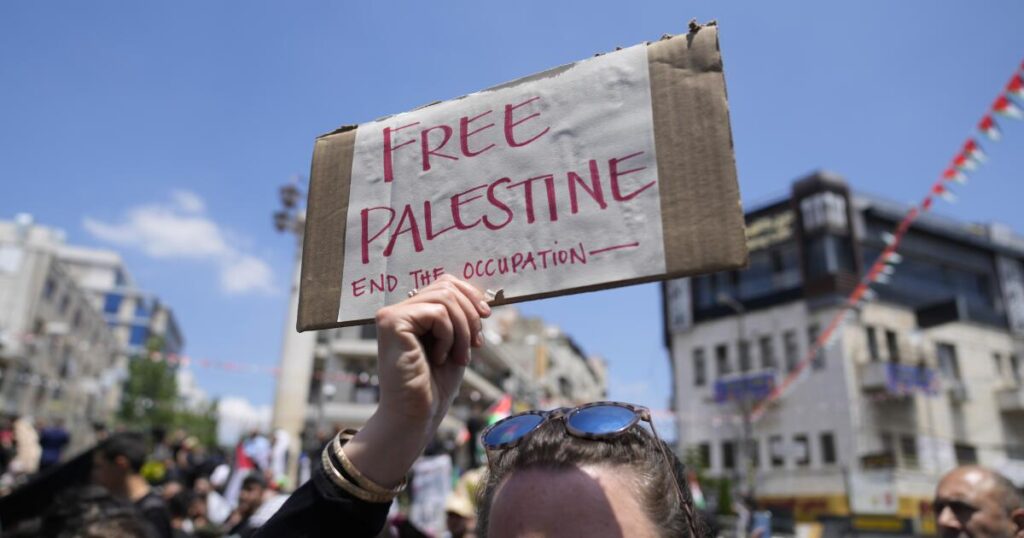Seven months after the Gaza disaster, little has been done to address the helplessness and anger felt by Palestinians.
International efforts to end the war in Gaza and secure an exchange of hostages and prisoners continue to be blocked, primarily by Israeli Prime Minister Benjamin Netanyahu. The International Criminal Court's chief prosecutor has decided to recommend the issuance of war crimes warrants against him, his defense minister, and three senior Hamas officials.
The ICC's decision follows a request for the Security Council to reconsider a May 10 resolution by the UN General Assembly calling for Palestine to be recognized as a full member of the UN. The Biden administration has already announced its intention to veto any such resolution, insisting that the establishment of a Palestinian state must be the result of direct negotiations. However, Prime Minister Netanyahu has refused direct negotiations with the Palestinians for more than a decade and has publicly rejected the idea of establishing a Palestinian state.
It is a waste of time at this point to try to push or beg Israel to join a two-state process that its current leadership has no interest in. The international community should seek other ways to get out of this dire situation in which innocent Palestinians are being killed and Israeli hostages and thousands of Palestinian political prisoners are suffering.
The closure of all political channels is adding to the despair of Palestinians. Even if a ceasefire is reached, anger will only worsen if there are no serious moves towards ending the occupation. Beyond a ceasefire, what is needed is a strong message that it is possible for two independent countries to live side by side in peace.
To show that Washington and the international community mean what they say, there are concrete steps that can be taken to convey this message to the public.
First, an international protection force separating Palestinians and Israelis would change the paradigm of Palestinian occupation and subjugation to one of equality, establishing the basis from which a political solution could emerge.
U.S. allies, including Western and Arab states, should be encouraged to commit to investing in the infrastructure needed for a future Palestinian state, such as airports in the West Bank and port expansion in Gaza. But the first requirement for such an effort is the presence of an International Peace Corps in both regions. Gulf countries have made it clear that they will not invest in infrastructure until they can ensure its durability.
Although the US is currently reluctant to recognise Palestine, it should use all its influence to ensure that Gaza and the West Bank do not remain separate and that a settlement freeze is implemented so that the two areas can function as one unit. The movement of people and goods between the two Palestinian areas must be guaranteed.
The nascent Palestinian state must have the means to sustain itself. Instead of Israel overseeing border crossings and collecting taxes and duties, while refusing to give the Palestinians their designated money for political and ideological reasons, it should hand over the borders and customs to an international body that would collect the duties on its behalf, and provide protection for the Palestinians until the statehood process is complete.
Similarly, Gaza and the West Bank need energy and water independence from Israel. Palestinians must be able to dig their own wells and drill for oil off the coast of the Gaza Strip. In the short term, the Palestinians could benefit from energy import assistance from Jordan and Egypt, Arab countries that have peace treaties with Israel. Jordan already provides electricity to Jericho in the West Bank and should expand this.
There are dozens of ways to help build facts on the ground to galvanize the two-state solution that Western and Arab states claim to support. It will not suddenly emerge in earnest to end the violence and stalemate in the Middle East. The international community, particularly the United States, must prioritize the rights of the Palestinian people in the immediate future to begin ending Israel's oppressive military occupation, build and maintain the infrastructure of independence, and move toward self-determination. There must be.
All that is needed is the political will of the Biden administration and America's allies.
A truce will come. The practical work of creating a Palestinian state alongside a clear and secure Israeli state could and should proceed, then and now.
Daoud Qutab is a Palestinian journalist, former professor of journalism at Princeton University, and columnist for Al-Monitor. X: @daoudkuttab Thread: @Daoud.Kuttab



